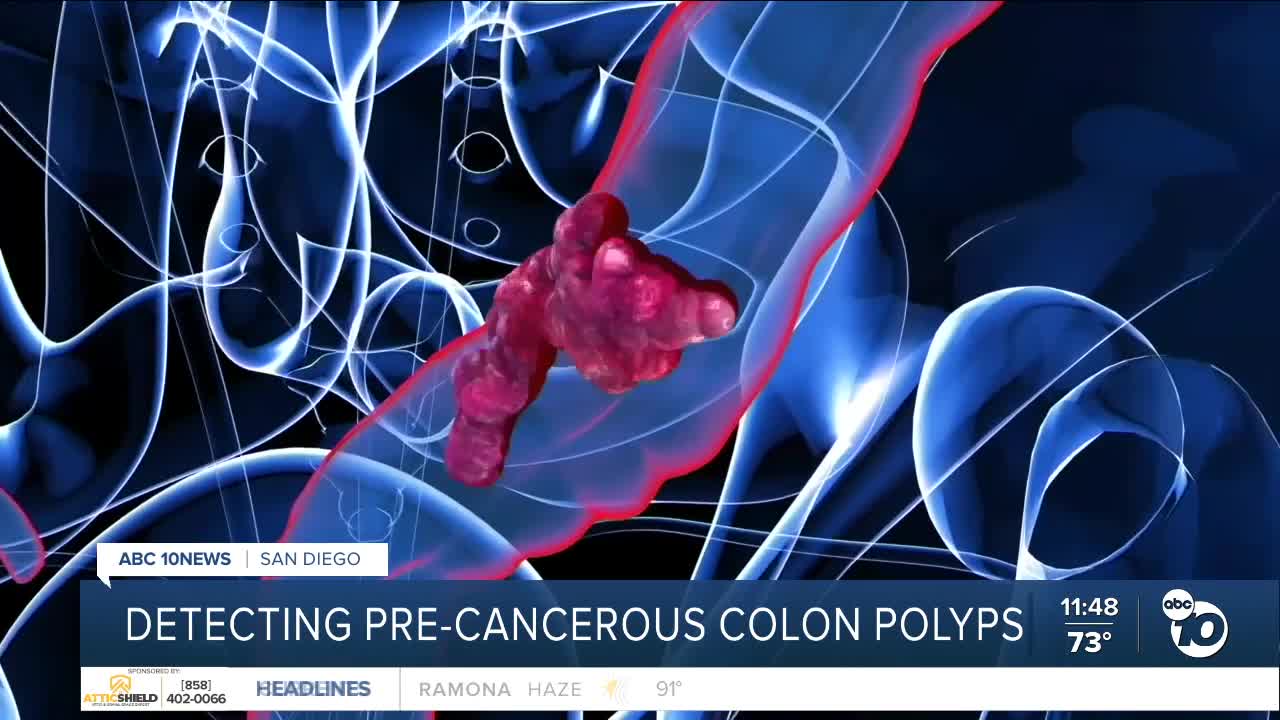LA JOLLA, Calif. (KGTV) - A new study shows the number of young adults getting colon cancer is on the rise, and Scripps Research in La Jolla is working on a way to detect it sooner and potentially save lives.
ABC 10News Anchor Jared Aarons spoke with Dr. Amy Lightner about a trial at Scripps Research for a new test to find pre-cancerous polyps.
"If we develop a test that is mailed to your home that someone can do on their own time without a bowel prep, they're not away from work, there's no invasive test, then we reach more people," Dr. Lightner said.
Currently, a colonoscopy can only detect cancer, not the polyps that lead to it. And because colonoscopies tend to be invasive and somewhat inconvenient, not everyone gets the screening they should.
In fact, only about 20% of young adults aged 45-49 get the recommended screening.
This new test could change that. It's a simple, home-based test to collect a sample and send it back. The test analyzes RNA to find pre-cancerous polyps.
A company called Viome created the test, while Scripps Research is conducting the clinical trial.
Dr. Lightner says they hope this kind of test can change people's thinking about early detection.
"We're challenged by time, by cost, and by people just not being able to get to it. So I think if we can develop something that can be delivered to all at a very low cost, in a very efficient way for people to do, it will really change the trajectory of colorectal cancer in general and the treatment and the overall mortality," Lightner said.
When it begins, Scripps Research hopes to get 1,000 people to take part in this study. They're looking for participants around the age of 45, which is when doctors recommend everyone start getting screened.
For more information about the study, click here.
This story was reported on-air by a journalist and has been converted to this platform with the assistance of AI. Our editorial team verifies all reporting on all platforms for fairness and accuracy.




